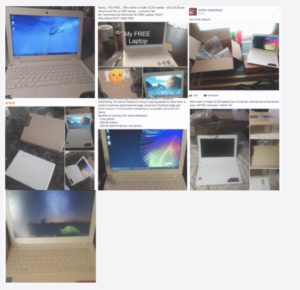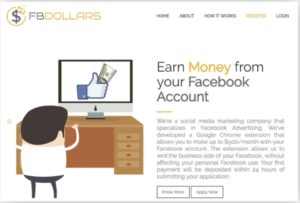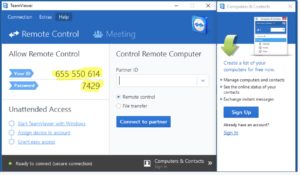Did you know you can rent out your Facebook account to make some quick cash, no work required?

We’ve recently started to see more mentions of the practice, which, let’s admit, sounds a little shady.
The concept has been around for a few years at this point, allowing blocked companies to run illegitimate campaigns through legitimate accounts.
These rental accounts let advertisers create new pages through user accounts and quickly put up ads.
The process is sometimes referred to as ad laundering, as there are two degrees of separation between the advertiser and the person posting the ads.
The companies behind these marketing schemes typically sell scammy products, too — think face cream subscriptions, male enhancement products, and online casinos.
What’s the rub?
So, it looks like this practice has been around at least since 2016. We did a little digging, and the origins of this scheme can be traced back to a 2016 Craigslist ad.
The idea is, brands who have lost advertising privileges have come up with a workaround of sorts.
The Facebook rental market is the new “black hat” link-building scheme. It’s an attempt for brands to increase website traffic and sell products quickly.
Brands sign up for a service with these middle man companies, who incentivize civilian Facebook users with the promise of up to $500 a month and a free laptop.
While some users on Reddit and Quora have mentioned that yes, they do get paid, the process is not as safe as these companies promise — big surprise, right?
For one, giving anyone — especially some company with no contact information — access to your account is a major security risk. Second, if Facebook catches you participating in one of these ad schemes, they will suspend or remove your account.
The rental service then just moves on to the next user, no big deal.
Free laptops and Raspberry Pis: with a catch
According to a security researcher from Novetta, users who rent their accounts out can make up to $500 a month and sometimes receive a laptop or Raspberry Pi upon signing up.
Unfortunately, the free computers come with a catch. Ad launderers preinstall software that gives them access to user Facebook accounts so that they can run ads remotely.

While these rented accounts are being used for what Facebook calls “inauthentic” activity, the companies responsible for the ads slip through the radar. Facebook’s recent ads crackdown is supposed to cover the full spectrum of scam content, but it seems they have their hands full with political or issues-based ads.
What companies are behind ad laundering?

Run a quick Google search, and you’ll see a list of several companies advertising “opportunities” to rent out your Facebook account.
There’s Ads Magnet, Rent Us Your FB, Mirra Technologies, fbdollars, fbrenters, and countless carbon copies.
All of the sites we found offer the same rundown: “applicants” fill out an application. “Rent Us Your FB” says the process is simple: Sign up, and you’ll be asked a few questions — “How old is your account?” “How many friends do you have?”
Once you’re “in,” the company will request access through TeamViewer, a web app that provides remote access without a password.

Then they can go into your account, create fan pages on behalf of the brand, and make changes without bothering you. Payments are processed through PayPal, and that’s it — you get paid.
Is renting out your account legal?
This is a scam in the sense that these companies and those advertisers who pay them are sidestepping Facebook’s advertiser guidelines.
You won’t go to jail for signing up with one of these shady services, but there could be consequences.
Like other “black hat” marketing practices, the real punishment lies in getting banned from Facebook. That’s why brands work with an intermediary — to avoid detection.
These companies treat real profiles as though they’re disposable. There are billions of users, so there’s always a new person willing to put their data at risk in the name of a few bucks.
We get it; sometimes you’ll do just about anything for a free computer. But if you have an active Facebook you’ve been using for a few years, you probably don’t want to get kicked off the platform. It’s probably smarter to stay away from the scheme altogether.

Emerging online scams in 2019
Read Now ►


